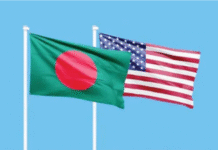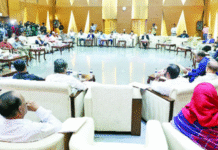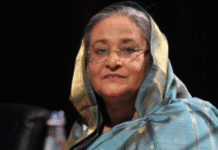Top quality or false glory?

Why isn’t DU among the top universities?
The issue of Bangladeshi universities missing from university rankings in a global context that now perturbs the current vice-chancellors has just prompted ready-made answers.
Outdated information on the websites that affected ranking, or bureaucratic red tape that discourages foreign students from coming to Bangladesh.
There is no self-criticism whatsoever, as to why not a single Bangladeshi university is there among 417 universities all over Asia. Still, authorities’ statements suggest that neither the universities can manage their websites, nor has the government been able to bring any reform in education to reach global standards.
Criticism by Bangladeshis, but from outside the universities, has exposed a certain amount of self-hating attitude and we can only imagine why and how such a culture has developed in a suffocating political atmosphere.
We jump when taking credit, without much thinking, when external actors say Bangladesh is one of the next 11 countries (Goldman Sachs) or per capita GDP of Bangladesh would exceed India’s by 2030 (Standard Chartered Bank).
But when foreigners criticize any of our performances, pointing out corruption and a lack of democratic space, many of the hostile minds go back to their own shells, to glorify the very self, by highlighting “conspiracy to stigmatize” home-grown achievements.
To take Bangladesh’s current per capita income from $1,599.8 to $5,734.6 in 2030, the country must achieve sustained economic growth at 11.2% from 2019 onward. This is what has been explained by Zahid Hussain, an economist at World Bank, who gently said he might have missed something when the bank that made the projection bracketed Bangladesh in the 7% growth club, even below the officially estimated rate of 8%.
The growth has also been undermined by an all-time high level of inequality in society — the fallout of resource extraction mostly by a class of the beneficiaries of the incumbents.
But the death of Bangladeshi youths in the Mediterranean while attempting to migrate to the dreamland of Europe proves something.
The doubling or tripling of costs of development projects, including mega-projects, shows who mainly harvested the fruits of spending taxpayers’ money. And the quality of growth is also reflected in the number of beggars on the streets, and of course, job crisis in almost all sectors.
Aside from questions over the authenticity of official data, concerns about the declining quality of education were being raised by the sons of the soil who understood the sector.
Once a foreign institute, London-based Times Higher Education (THE), published its report, we joined the criticism-spree either to vilify our national institutions or to defend them when they are at the wrong end.
A claim made reportedly by a faculty of Dhaka University, that the ranking institute demanded 45,000 pounds for including Dhaka University in the list; this has at least increased curiosity among social media activists.
“This is of course entirely false and defamatory,” THE’s Phil Baty said in his emailed reply to my query, adding that all universities in the ranking submit their institutional data for analysis “entirely for free,” a process which is subject to external audit by PricewaterhouseCoopers.
It’s also a fact that education is a business in the West as well, and they may take advantage of the poor ranking of the third world’s educational institutions. Will the DU professor in question and the company hire, in the future, organizations like QS World Rankings, which make better rankings in exchange for cash?
A professor is confident that there is no question with “teaching, research, knowledge transfer, and international outlook,” the criteria for assessing the universities. Instead of admitting the university’s drawbacks, he tried to trumpet what is not the case.
The vice-chancellor once found glory for the university in the availability of samosas and tea on the campus at cheaper rates. Education and research, the dual objective of the university, was not there on his mind.
The administrator of the country’s premier university does not perhaps understand the difference between glory of the past, and academic standards required for offering world-class education. His administration has even polluted the electoral process of Dhaka University Central Students’ Union (DUCSU), once considered an abode of creating future political leaders.
The university played a critical role in national movements for independence and democracy, but that is not the job of a university. Does any glorious past mean that the teachers would not need to create knowledge, and transfer it to students if they are allied with the ruling party?
You got what you wanted: Giving preference to self-aggrandizement over the pursuit of knowledge.
A late DU VC told us in the early 1990s that this university is called “Oxford of the East” for following Oxford’s course system, tutorial system, and residential system. We will never know who equated the university’s history with academic accomplishments at Oxford.
Many of my seniors, friends, and juniors are indebted to DU, especially to the tax-payers who helped us with affordable education, but the overall teaching quality and state of research had shocked us, even before we visited campuses of some foreign universities.
The university has always received, arguably, the best boys and girls of the country, but the academic atmosphere, more in recent decades, has not been congenial for the blossoming of young minds.
The debates surrounding university rankings not only expose our highly polarized views but also prove our parochialism in the way we own our institutions or criticize them.
The world around us reminds us that it’s the era of Donald Trump, whom his critics called a narcissist, who takes decisions based on whims. I believe Bangladesh’s next generation will not hide their faces the way the ostriches do, to escape the reality of life.
Khawaza Main Uddin is a journalist and winner of UN MDG Award, DAJA Award and WFP Award twice. He can be contacted at khawaza@gmail.com.









